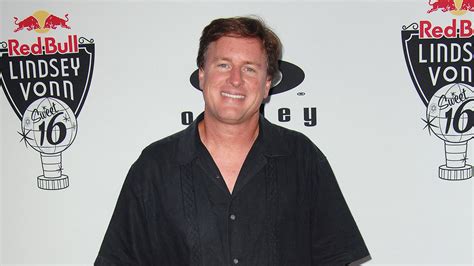A Quote by Richard Dawkins
Commonsense lets us down, because commonsense evolved in a world where nothing moves very fast, and nothing is very small or very large; the mundane world of the familiar.
Related Quotes
It's very enigmatic because of course, the population [of North Korea] has no contact with the world outside or it's very, very limited. They don't have any telephone connections, no radio, no TV, no movies, no newspapers - nothing from the outside world. This is very strange and there's the very strict, unifying government that forces you to be in step. You see it in the stadium where the spectators create, by flipping cards, an image of the dear leader, or of the volcano, and it's made of a 100,000 human pictures.
There is nothing in the world like the rush of going down a mountain and harnessing all that energy and all that gravity and using it for your own pleasure. There's just nothing like skiing. It's very similar to surfing. I don't surf, but it's very similar to surfing. There's just nothing like it. It's amazing. You have to try it.
You get a kind of surreal feeling and also it allows you to focus on the things we want you to focus on in a new way - the stuff that's very small and mundane that happens in a person's life when they're in a hotel room. There's more interest because you're seeing a puppet do things that you're very familiar with that you might not notice if it was a human doing it.
It's a wonderful thing to be able to create your own world whenever you want to. Writing is very pleasurable, very seductive, and very therapeutic. Time passes very fast when I'm writing-really fast. I'm puzzling over something, and time just flies by. It's an exhilarating feeling. How bad can it be? It's sitting alone with fictional characters. You're escaping from the world in your own way and that's fine. Why not?
I perceive the world in fragments. It is somewhat like being on a very fast train and getting glimpses of things in strange scales as you pass by. A person can be very, very tiny. And a billboard can make a person very large. You see the corner of a house or you see a bird fly by, and it's all fragmented. Somehow, in painting I try to make some logic out of the world that has been given to me in chaos. I have a very pretentious idea that I want to make life, I want to make sense out of it. The fact that I am doomed to failure - that doesn't deter me in the least.
Do not be afraid of large patterns, if properly designed they are more restful to the eye than small ones: on the whole, a pattern where the structure is large and the details much broken up is the most useful...very small rooms, as well as very large ones, look better ornamented with large patterns.





































